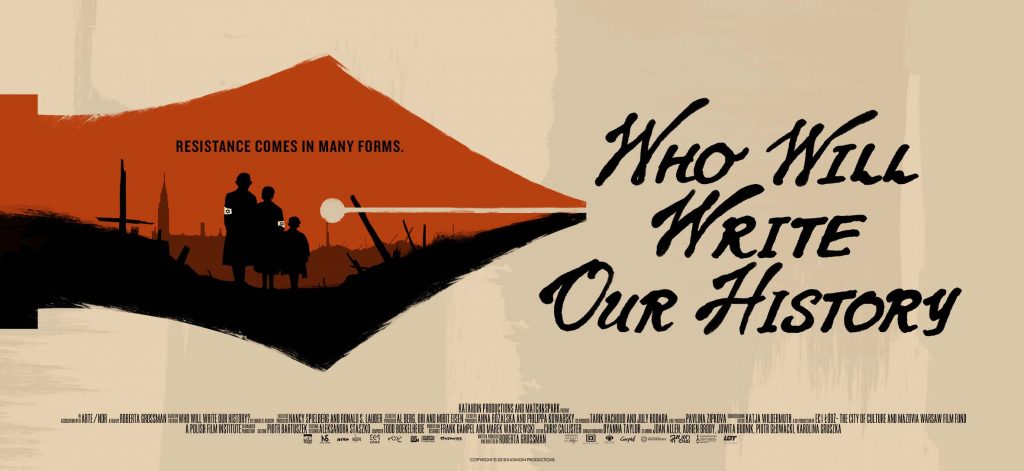Like so many, I have been glued to my radio these last few weeks, as ever-changing reports have been released about the death of Saudi journalist and author Jamal Khashoggi. Those horrifying reports have often been paired with reports from the Saudi Arabia-Yemen conflict, which has left Yemen in a state of humanitarian disaster, with famine, cholera, and other terrors threatening the country’s people.
What seems so surprising, though, is how often we in the States have little to no knowledge of what is happening around the world — sometimes, as is the case in Yemen, with our support. I know: We’re all busy, and we all have problems of our own. I get it. But it seems like widening our perspective, however little, will only benefit us all. This week a few films give us the chance to do just that, by looking back on troubled times in European Jewish history.
First up is Who Will Write Our History?, director Roberta Grossman’s 2018 film about a group of journalists, scholars, and community leaders who sought to defeat the Nazi propaganda machine not by taking up arms, but by putting pen to paper. The documentary brings us back to November of 1940, when the Nazis sealed the Warsaw Ghetto, cutting off nearly half a million Jewish residents from the outside world. Determined to ensure that their story would not be told by their captors, the Oyneg Shabes — the name the clandestine group of archivists worked under — collected tens of thousand of documents to shed light on what the Nazis did in the dark. They took in everything from candy wrappers and newspapers to a drawing that shows a man collecting money to bury a child who died in the streets. Anything, says Grossman, that “would help future historians tell the story of the Ghetto from the Jewish point of view, not from the Nazi perspective.” Secreted away in milk cans and buried on the even of the Warsaw uprising, what is now known as the Ringelblum Archive (after the historian who led the effort) would prove an invaluable chronicle of life in the Ghetto.
Grossman will be at the Yiddish Book Center’s screening to present an introduction to the film and engage in a Q&A about the remarkable archive that would live on, even if its makers did not, to “scream truth to the world.”
Who Will Write Our History?, November 10th, 7:30 p.m., Yiddish Book Center, 1021 West St., Amherst
The very next day, the book center hosts 1945, a film about an elderly Orthodox Jewish father and his adult son who return to their village in Hungary at the end of the war years. Directed by Ferenc Török, and based on the short story “Homecoming” by Gábor T. Szántó, the 2017 film shows us a tightly knit society struggling to come to terms with the horrors that they have helped make real. When the pair arrive, the townspeople, in the midst of preparing the wedding of the town clerk’s son, suddenly find themselves on edge. And with good reason: When the Germans deported the Jewish residents, the people that remained snatched up whatever they could. Not all of them are without remorse; town drunk Bandi wants to give it all back, but is shot down by his wife, who is happy to keep her newfound treasures.
Shot in a quietly lush black and white that echoes classic American westerns, the film follows the journey of these visitors and the mysterious boxes they have brought with them, letting the tension build onscreen and in the audience until the final moments reveal their intentions.
1945, November 11th, 2:00 p.m., Yiddish Book Center, 1021 West St., Amherst
Jack Brown can be reached at cinemadope@gmail.com



